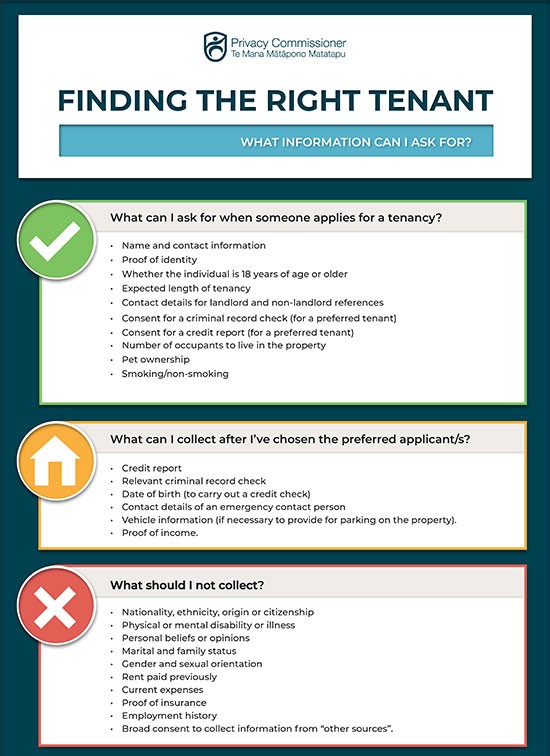
New Zealand landlords sharing ‘bad tenant’ information on private social media groups and websites have come under fire from the Privacy Commissioner, the property management industry and a renter advocacy group.
“Bad Tenants” info shared online by bad landlords
Bad Tenants, New Zealand (landlords only) is a private Facebook group with 3,600 members. Created in 2017, the group page is said to be used to blacklist tenants based on information shared by their previous landlords — some of which is unverified. Property managers and landlords alike have been using the page to screen would-be tenants.
This has drawn outrage from Privacy Commissioner John Edwards who said groups like Bad Tenants can effectively lock renters out of the rental market thanks to information they don’t even know a prospective landlord has access to.
Describing the act as “unfair”, Edwards noted the Privacy Commission sees cases in which tenants are tainted by their association with a co-tenant or abusive partner — potentially marginalising “people who are vulnerable and disempowered.”
Edwards said tenants are entitled to ask what info a landlord or social media group holds about them, saying, “if the landlord or group does not hand it over, or destroys it, that could be a criminal offence.”
He announced in February that the Privacy Commission will focus on ensuring a high standard of compliance within the residential rental sector off the back of the number of complaints they’ve recently received about the practice.
Robert Whitaker, spokesperson for Renters United commented on the matter, saying that ethnicity, disability, name, and appearance are attributes New Zealand tenants are all too often discriminated based upon.
A history of tenant screening overstepping the mark
Landlords and property managers overstepping the mark when gathering information about would-be tenants is nothing new, but it came to a head during a select committee hearing in 2018 when an Auckland property manager spoke of routinely asking tenants for bank statements during the screening process.
Dubbed the ‘KFC Test’ (due to the property manager’s comments about prospective tenants’ fast food purchasing habits detailed in their bank statements), this practice of bank statement dissection drew harsh criticism from Real Estate Institute of NZ (REINZ) CEO Bindi Norwell, who said the focus of a property manager’s due diligence in placing a tenant needs to focus on whether they have stable employment and can pay the rent, “Not whether they spend their disposable income on KFC or Uber Eats.”
What information can landlords and property managers ask tenants for?
The Office of the Privacy Commission says that landlords can collect information to assess whether a tenant can pay rent, and that they should collect the minimum amount of personal information necessary to make that decision.
Following the KFC Test revelations, the Privacy Commission released guidelines around what landlords and property managers can ask for at the time of tenancy application, once they’ve chosen the preferred applicant(s), and what they shouldn’t ask for at any point.
Information that can be asked for at the application stage includes name and contact information, proof of identity, contact details for landlord and non-landlord references, consent for a criminal record check and a credit report (for a preferred tenant), pet ownership, and smoking/non-smoking.
See the full list of which information can and can’t be asked for at each stage in the graphic created for landlords and property managers below.

How does McPherson Property Management screen tenants for our landlords?
The McPherson Property Management team and other Ray White property managers around the country have access to legitimate platforms, such as TPS (Tenancy Practice Services), allowing us to properly screen and check prospective tenants in a manner that is lawful and in accordance with Privacy Commission Guidelines.
The TPS tool we use is exclusively available to licensed property managers and can check over 90 different databases to complete a reliable vetting process and place the right tenants in our landlords’ investment properties.
In addition to this we complete reference checks with previous landlords and employers. If a potential tenant doesn’t have a rental history as they have been homeowners, we use their real estate agent.
Ethics and a fair go for renters and landlords
We are Christchurch property managers who conduct ourselves in the utmost professional manner at all times, and we encourage the rest of the industry to follow suit.
It’s our duty to find reliable tenants to place in our trustworthy landlords’ Christchurch rental properties. Please get in touch if you have any questions around what information landlords can rightfully ask tenants for, and how our property managers can help you.
Image: ‘Privacy – Privacy Online’ by Blue Coat Photos via CC BY-SA 2.0.

